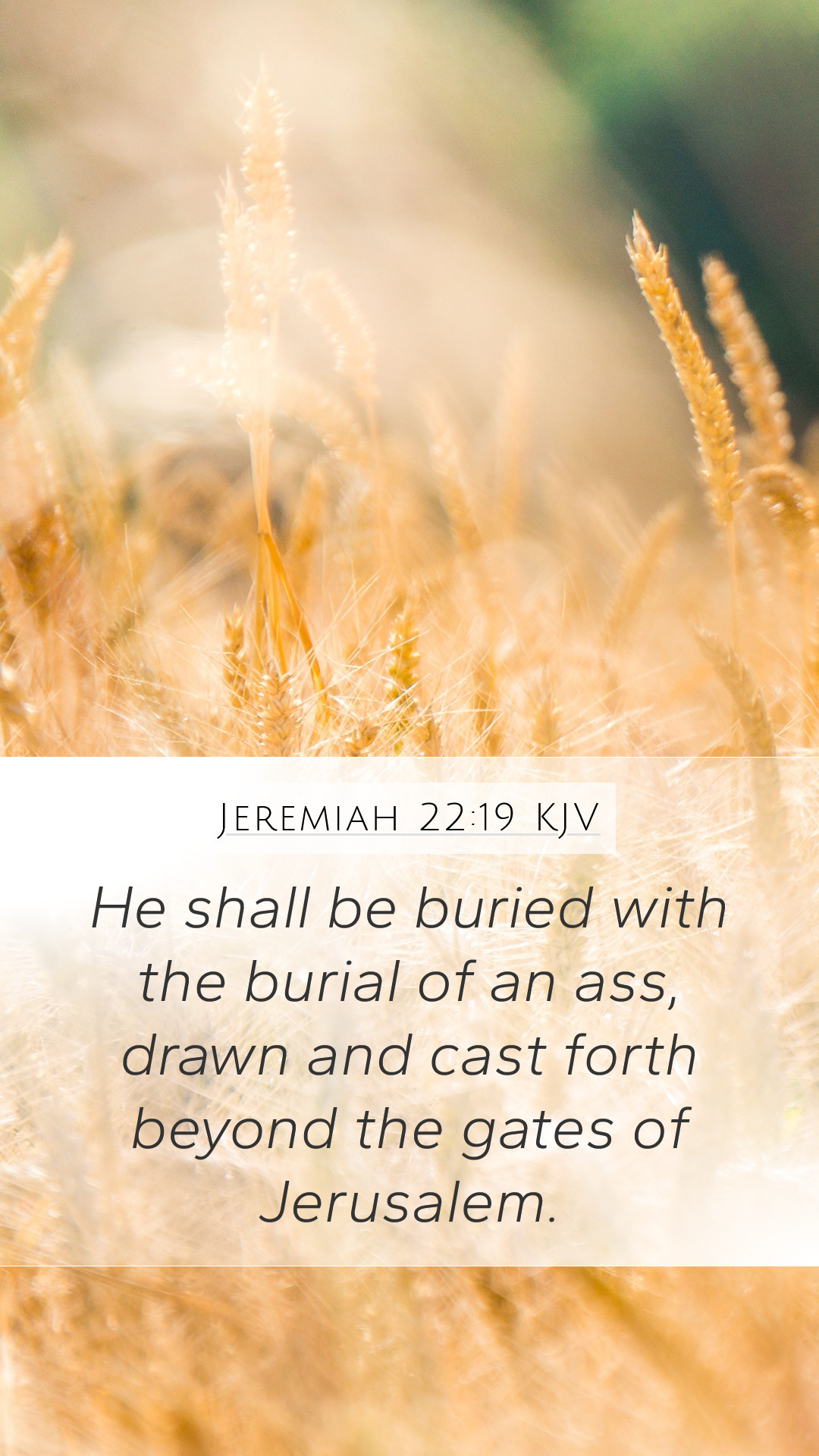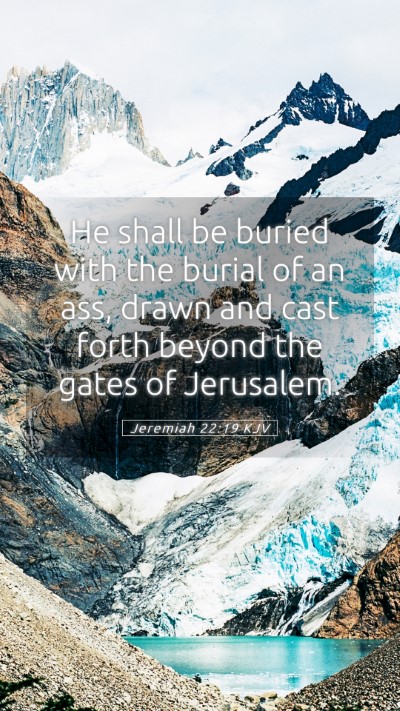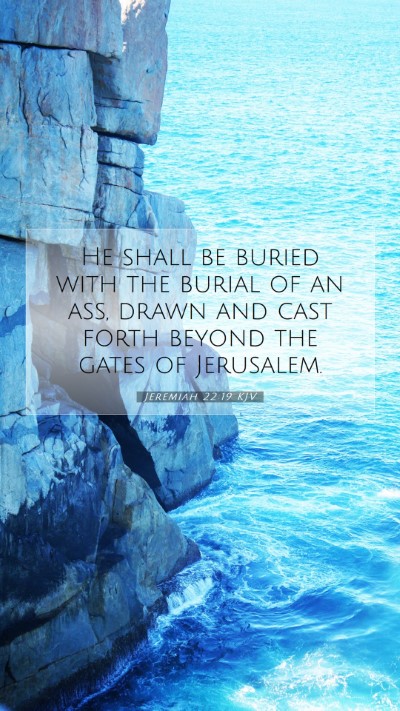Understanding Jeremiah 22:19
Jeremiah 22:19 states: "He shall be buried with the burial of an ass, drawn and cast forth beyond the gates of Jerusalem." This verse serves as a stark reminder of the consequences of unrighteous leadership and disobedience to God.
Context of the Verse
The book of Jeremiah contains prophetic messages delivered by the prophet Jeremiah during a tumultuous period in Judah's history. The context surrounding Jeremiah 22:19 reveals God’s judgment upon the king, whose reign was marked by immorality and idolatry. This verse specifically refers to Jehoiakim, who was known for his oppressive rule and disregard for God's commandments.
Biblical Exegesis and Commentary
According to Matthew Henry, this verse highlights the disgrace that accompanies a life lived in rebellion against God. The metaphor of being buried like a donkey conveys utter dishonor, symbolizing how Jehoiakim’s rejection of God’s ways leads to his ignominious end. In contrast, burial rites were typically respectable, suggesting that this punishment signifies divine abandonment.
Albert Barnes emphasizes the prophecy's literal fulfillment, illustrating that Jehoiakim would not receive the honour of a proper burial, a reflection of the indignation God harbors against unfaithful leaders. This prophetic declaration serves as a powerful warning to rulers, urging them to uphold justice and seek godliness in their reign.
Adam Clarke expands on the implications of this fate, suggesting that it serves as a dire example for future generations. The disdainful burial emphasizes the lesson that earthly power, when misused, leads to degradation and loss of legacy. Clarke's analysis underscores the importance of righteous leadership and God's expectations for those who govern.
Meaning of the Verse
Ultimately, Jeremiah 22:19 serves multifaceted purposes:
- Warning Against Corruption: This verse illustrates the serious nature of abandoning God’s principles, acting as a cautionary tale for leaders and individuals alike.
- Consequences of Idolatry: It reflects on how turning away from God and towards idolatry ultimately leads to shame and destruction.
- God’s Judgment: The imagery of disgrace in burial signifies God's righteous judgment against those who persistently defy His commandments.
Application of Jeremiah 22:19
The application of this verse can be profound for contemporary readers:
- Personal Reflection: Individuals are called to reflect on their own lives and assess whether they uphold righteousness in their actions.
- Leadership Responsibility: Leaders are reminded of their accountability to God and the importance of justice, integrity, and humility.
- Community Impact: This verse encourages communities to support and nurture ethical leadership that aligns with God’s standards.
Cross References
This verse connects deeply with several other scripture passages that highlight themes of divine judgment and accountability:
- 2 Kings 24:6-7: Discusses the reign and death of Jehoiakim.
- Jeremiah 36:30: Illustrates judgment upon Jehoiakim for his actions against God's word.
- Ezekiel 32:18-19: Provides a similar image of dishonor and judgment for the wicked leadership.
Conclusion
In summary, Jeremiah 22:19 provides profound insights into the grave consequences of unrighteousness. Through the lens of various public domain commentaries, it becomes clear that this verse not only serves as a historical account of a king's demise but also acts as a timeless lesson on the importance of aligning life's choices with divine will and leading with integrity.
The study of this verse enriches our understanding of Scripture, reminding us to embrace the principles of righteousness in our personal lives and leadership roles.


